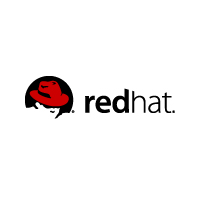FOSS@MAGIC: Minor in Open Source & Free Culture
The minor is designed to allow any student across the institute to become a Free and Open Source Software (FOSS) and Free Culture (FC) contributor, project leader, community manager and/or departmental resource for other students and faculty. The minor is administered through the RIT School of Interactive Games & Media, and involves courses from both the B. Thomas College of Computing & Information Sciences (where IGM is located), and the College of Liberal Arts.
B. Thomas Golisano College of Computing & Information Sciences
Humanitarian Free and Open Source Software Development
Humanitarian Free and Open Source Software Development introduces students to processes, practices, tools and technologies of the FOSS community. It’s where they make their first contributions and work on their first projects. These projects generally require multidisciplinary teams, so students lacking strong programming skills can contribute
Legal and Business Aspects of FOSS and Free Culture
Legal and Business Aspects of FOSS examines reactions to copyright from Copyleft and Creative Commons, the range of FOSS Licenses. It takes a look at FOSS and Free Culture business practices in general and at examples and case studies of specific corporations.
Software Development on Linux Systems*
Students will learn how to design, package, release and maintain open source software.
Topics such as open source communities, Linux packages, package managers, version control systems, software development tools, licensing, releasing, bug tracking, maintenance, patching and future development, will be covered in lectures
Project in FOSS Development**
Unix-Based System Forensics**
Foundations of Mobile Design**
College of Liberal Arts
Free and Open Source Culture
Humanitarian Free and Open Source Software Development introduces students to processes, practices, tools and technologies of the FOSS community. It’s where they make their first contributions and work on their first projects. These projects generally require multidisciplinary teams, so students lacking strong programming skills can contribute.
Technical Writing*
Depending on their individual abilities and interests, students will either take the Linux Systems course to learn about packaging, distribution, revision and community/contributor management or take Technical Writing as it’s a skill set contributor communities often lack.
Text & Code**
Text and Code explores innovative and evolving questions and practices of text and code in literature, linguistics, creative writing, geospatial mapping, locative and interactive media. Students use FOSS Tools to create Free Culture works.
Introduction to Natural Language Processing**
Language Technology**
*Students pursuing this minor are required to complete one of these courses.
**These courses are elective within the minor (students are required to choose amongst these courses to complete the total number of required credits).
Students must take one elective course from an approved list. Approved electives must use FOSS and/or FC tools or communities as part of the instructional model for the course.
Of particular note are the orange courses:
- The Liberal Arts "Language" courses are part of a collection of five in "Human Language Technology and Computational Linguistics” that use NLTK and other FOSS tools
- The computing courses, Computer Systems Forensics and Foundations of Mobile Design which are advanced courses from other computing degree programs at RIT
The rationale for including courses like these within the minor is that it allows the students to act as resources in those courses for other students and/or the faculty member to engage with if they want to participate in the existing community to squash bugs and/or fork the tool for new development within the course.
As the minor is offered over time, more of these types of courses from other disciplines around campus will be added to the list.




